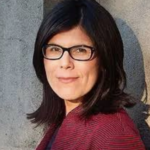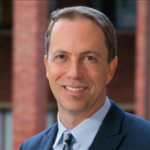Homelessness and xenophobia during the COVID-19 pandemic
In addressing the needs of the vulnerable, and focusing on our common humanity, we’ll be better positioned to weather the unprecedented coronavirus pandemic, USC experts say.
Contact: Leigh Hopper at (310) 308-0405 or lhopper@usc.edu
Repurposed high school gyms could help meet urgent need
 Michael Cousineau, a clinical professor in the department of preventive medicine and family medicine at the Keck School of Medicine of USC, says people who are homeless live in conditions that put them at higher risk for contracting the coronavirus and becoming more severely ill.
Michael Cousineau, a clinical professor in the department of preventive medicine and family medicine at the Keck School of Medicine of USC, says people who are homeless live in conditions that put them at higher risk for contracting the coronavirus and becoming more severely ill.
“We need sensible policies that might include new communal living quarters (shelters or even repurposed high school gyms) that also meet CDC prevention guidelines — particularly social distancing, including spacing of beds, and how meals are prepared and served to guests, and having sanitation sites and bathrooms available.
“We should also stop enforcing current laws and policies that in fact could make things worse such as towing of motor homes and other vehicles where clearly people are living. Other policies require people to take down tents during the day or result in the displacement or even destruction of encampments during efforts to clean sidewalks and streets.
“Some people at lower risk might be safer in a tent than in a shelter, so smart policies need to be implemented that minimize spread of the virus while also protecting the rights and promoting the health of homeless people.
“Special efforts need to be implemented that are designed to identify and engage homeless people with known health and mental health problems and assist them with any referral to housing, or provide some limited care. We should also properly train staff and even retrain others to help in conducting outreach and providing services and education.
Contact: cousinea@med.usc.edu
Language of immigration, disease historically linked
 Natalia Molina, a professor of history and American studies at USC’s Dornsife College, sees a common — and risky — tendency to focus on racial categories in times of public health crises:
Natalia Molina, a professor of history and American studies at USC’s Dornsife College, sees a common — and risky — tendency to focus on racial categories in times of public health crises:
“The language of disease has always been linked to our discourse around immigration. Calling this the ‘Chinese virus’ is unhelpful. We need to focus on behaviors and practices, not specific population groups. We need to talk about geographic zones, but we can’t map the disease onto certain bodies based on race and appearance.
“We know to wash our hands, we know to stay home when we’re sick. But we tend to focus less on those practices than we do on pointing out people that we think are going to be more likely to be disease carriers.”
Contact: natalia.molina@usc.edu
‘Street Medicine’ is a vital stop-gap
 Brett Feldman, director of Street Medicine at the Keck School of Medicine of USC, is trying to mitigate the risk of widespread illness among Los Angeles’ massive homeless population:
Brett Feldman, director of Street Medicine at the Keck School of Medicine of USC, is trying to mitigate the risk of widespread illness among Los Angeles’ massive homeless population:
“Our team spends most of the day on the streets informing people about COVID-19 and passing out hand sanitizer since access to hand washing is so scarce. They don’t have access to the most up-to-date news. We also assess their camp or environment to decrease risk – things like providing tents for people who need to be isolated but aren’t able to get to a shelter with quarantine ability or recommending that tents be six feet or more apart.”
“The vast majority of people we serve don’t have access to healthcare. If they become sick, we may be the only ones to know. If this outreach is delayed, they have the potential to come in contact with hundreds of other people.”
Contact: brettfel@usc.edu
‘We need a moratorium on evictions’
 Gary Painter, director of the Sol Price Center for Social Innovation, recommends immediate action to address housing instability and homelessness:
Gary Painter, director of the Sol Price Center for Social Innovation, recommends immediate action to address housing instability and homelessness:
“Over 1.5 million households pay more than 50% of the income as rent in California. With the massive economic shutdown and public health crisis associated with COVID-19, swift action is needed to help those whose housing is most vulnerable.
“We need a moratorium on evictions as low and moderate income earners lose paychecks due to the economic shutdown. Some provisions need to be made for small landlords, but it is essential to not drive up homelessness through eviction right now.
“Immediate action is needed to help the homeless. People currently in shelters need to moved to situations with more physical distance. This will require more shelters. The many that are currently unsheltered need a place to receive potential medical care and shelter to prevent an outbreak among the unsheltered. At this time, many hotels and motels sit with empty rooms. Convention centers and other public spaces are now open because of the economic shutdown. We must act quickly to allow these spaces to be used for emergency shelter.”
Contact: gpainter@usc.edu



